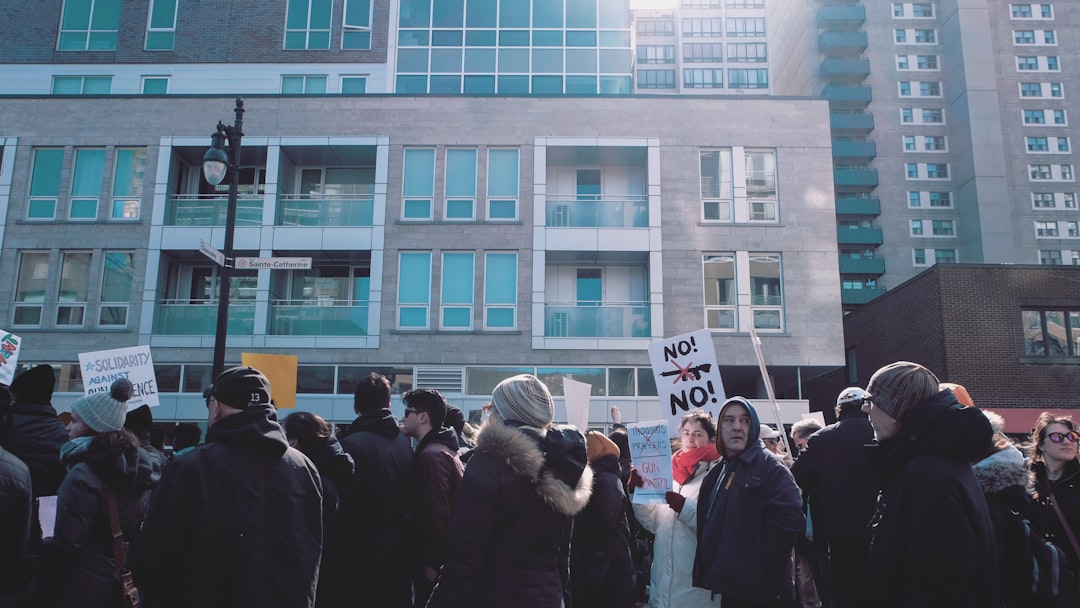Embracing Diversity and Healing Together: Cultivating Cultural Sensitivity in Mental Health Support
Embracing diversity and healing together
Embracing diversity and cultivating cultural sensitivity in mental health support is essential for creating a more inclusive and effective healthcare system. In recent years, there has been a growing recognition of the importance of cultural competence in mental health services. This blog explores the significance of embracing diversity and provides practical tips for mental health professionals to enhance their cultural sensitivity skills. By acknowledging and respecting the unique perspectives and experiences of individuals from diverse backgrounds, we can create a more compassionate and empowering environment for healing and growth. Join us on this journey of embracing diversity and healing together.

The power of cultural sensitivity in mental health support
Cultural sensitivity plays a vital role in providing effective mental health support. It involves understanding and respecting the cultural beliefs, values, and practices of individuals from diverse backgrounds. By incorporating cultural sensitivity into mental health services, professionals can create an inclusive and empowering environment for healing and growth. Here are some key reasons why cultural sensitivity is powerful in mental health support:
1. Building Trust and Rapport: When mental health professionals demonstrate cultural sensitivity, it helps to build trust and rapport with clients from different cultural backgrounds. Clients feel understood, valued, and respected, which enhances the therapeutic alliance and promotes a sense of safety and comfort.
2. Tailoring Treatment Plans: Cultural sensitivity allows mental health professionals to tailor treatment plans according to the unique needs and preferences of individuals. It acknowledges that different cultures may have distinct ways of understanding and experiencing mental health issues, and treatment approaches should be aligned with these cultural nuances.
3. Addressing Stigma and Barriers to Help-seeking: Cultural sensitivity helps to address the stigma associated with mental health within different cultural communities. It acknowledges the impact of sociocultural factors on mental health attitudes and behaviors, allowing professionals to provide culturally relevant information and support to overcome barriers to help-seeking.
4. Enhancing Cultural Competence: Cultural sensitivity promotes ongoing learning and self-reflection, leading to enhanced cultural competence among mental health professionals. Cultural competence involves having the knowledge, skills, and attitudes necessary to provide effective care to individuals from diverse cultural backgrounds.
5. Empowering Individuals: Cultural sensitivity empowers individuals by validating and affirming their cultural identities and experiences. It recognizes the strength and resilience within diverse cultures, enabling individuals to embrace their heritage while addressing mental health concerns.
In conclusion, cultural sensitivity is a powerful component of mental health support. By embracing diversity and incorporating cultural sensitivity into their practice, mental health professionals can create a compassionate and empowering environment that fosters healing and growth for individuals from diverse backgrounds.

Celebrating differences: Embracing diversity within mental health communities
Diversity within mental health communities is crucial for creating inclusive and supportive environments for individuals seeking help and support. Embracing diversity goes beyond just acknowledging and tolerating differences; it involves celebrating and valuing the unique perspectives and experiences that each individual brings to the table. Here are three key reasons why celebrating differences is essential within mental health communities:
1. Breaking Down Stigma and Stereotypes: Embracing diversity helps break down the stigmas and stereotypes associated with mental health. By celebrating the diversity of backgrounds, cultures, and identities within mental health communities, we challenge the notion that mental health issues only affect certain groups of people. This can help reduce the shame and discrimination often experienced by individuals with mental health concerns.
2. Fostering Understanding and Empathy: When mental health communities are diverse and inclusive, it promotes understanding and empathy among individuals. By interacting with people from different backgrounds, individuals gain new perspectives and insights into the lived experiences of others. This leads to greater empathy and compassion, creating a supportive and non-judgmental environment.
3. Providing Culturally Relevant Support: Celebrating diversity within mental health communities ensures that support and resources are tailored to the specific needs of individuals from different backgrounds. Each culture may have its own unique ways of understanding and addressing mental health concerns, and by embracing diversity, mental health professionals and communities can provide culturally relevant and sensitive support. This can include incorporating cultural practices, beliefs, and languages into treatment approaches.
In conclusion, celebrating differences and embracing diversity within mental health communities is crucial for creating inclusive, supportive, and culturally sensitive environments. By breaking down stigma, fostering understanding, and providing culturally relevant support, we can ensure that individuals from diverse backgrounds feel seen, heard, and validated in their mental health journeys.

https://unsplash.com/@neonbrand
Cultivating cultural sensitivity: Understanding the unique needs of diverse individuals
Cultivating cultural sensitivity is a fundamental aspect of providing effective mental health support to diverse individuals. It involves gaining an understanding of the unique needs, perspectives, and experiences of individuals from different cultural backgrounds. By cultivating cultural sensitivity within mental health communities, professionals and support systems can ensure that they are providing inclusive, tailored, and effective care for all individuals.
Here are key ways to cultivate cultural sensitivity in mental health support:
1. Education and Awareness: Mental health professionals should actively seek to educate themselves about different cultures, traditions, and belief systems. This includes learning about cultural norms, values, and practices that may influence an individual's perception of mental health and treatment options. By increasing their cultural awareness, professionals can better understand the unique needs and challenges faced by diverse individuals.
2. Recognizing and Challenging Assumptions: It is essential to recognize and challenge any assumptions or stereotypes that may be held about individuals from different cultural backgrounds. It is natural for biases to exist, but by actively examining and challenging these biases, mental health professionals can ensure that they are providing unbiased and culturally sensitive support.
3. Developing Cross-Cultural Communication Skills: Effective communication is central to providing culturally sensitive mental health support. Mental health professionals should aim to develop cross-cultural communication skills, which involve actively listening, being open-minded, and avoiding assumptions. This enables professionals to effectively engage with diverse individuals, understand their perspectives, and tailor their approach accordingly.
4. Collaboration and Partnership: Cultivating cultural sensitivity involves actively collaborating and partnering with individuals from diverse communities. This collaboration can take the form of community outreach programs, partnerships with cultural organizations, or seeking guidance and input from individuals with lived experiences from different cultural backgrounds. By involving diverse perspectives in the planning and implementation of mental health support services, professionals can ensure that their efforts are meaningful, relevant, and culturally appropriate.
5. Providing Culturally Competent Care: Cultural competence refers to the ability to understand, appreciate, and respond effectively to the cultural and linguistic needs of diverse individuals. Mental health professionals should strive to provide culturally competent care by tailoring treatment approaches, incorporating cultural practices and beliefs, and respecting the individual's cultural identity. This may involve offering interpreters or bilingual professionals, considering cultural barriers to treatment, and adapting therapeutic modalities to align with an individual's cultural preferences.
In conclusion, cultivating cultural sensitivity is essential in mental health support to effectively address the unique needs of diverse individuals. By educating oneself, challenging assumptions, developing cross-cultural communication skills, collaborating with diverse communities, and providing culturally competent care, mental health professionals can ensure that their services are inclusive, supportive, and respectful of the diverse backgrounds and experiences of individuals seeking help.

https://unsplash.com/@visualize
Creating a safe space: Fostering inclusivity and empowering voices
Creating a safe space is a crucial aspect of fostering inclusivity and empowering voices in mental health support. It involves creating an environment where individuals from diverse backgrounds feel safe, respected, and heard. By cultivating a safe space, mental health professionals can ensure that individuals feel comfortable expressing their thoughts and emotions, knowing that they will be listened to and validated.
Here are key strategies for creating a safe space in mental health support:
1. Non-judgmental Attitude: Mental health professionals should approach each individual with a non-judgmental attitude, avoiding any biases or preconceived notions. They should provide a safe and accepting environment where individuals feel comfortable discussing their mental health concerns without fear of judgment or discrimination.
2. Active Listening: Active listening is a crucial skill for creating a safe space. Mental health professionals should actively listen to individuals, giving them their full attention and demonstrating empathy. This involves focusing on the speaker, acknowledging their emotions, and validating their experiences.
3. Respect and Validation: It is essential to respect and validate the experiences and feelings of individuals from diverse backgrounds. Mental health professionals should acknowledge the unique challenges and discrimination individuals may face based on their cultural, ethnic, or gender identities. By validating their experiences, professionals can help individuals feel understood and supported.
4. Cultivating Empathy: Empathy is a fundamental aspect of creating a safe space. Mental health professionals should strive to understand the emotions and experiences of individuals from diverse backgrounds. This involves putting oneself in their shoes, seeing the world from their perspective, and demonstrating genuine care and understanding.
5. Confidentiality: Confidentiality is crucial for creating a safe space. Mental health professionals should emphasize the importance of confidentiality and assure individuals that their personal information and discussions will be kept private. This instills a sense of trust and encourages individuals to open up and share their concerns openly.
6. Cultural Sensitivity: Being culturally sensitive is integral to creating a safe space. Mental health professionals should educate themselves about different cultural norms, beliefs, and practices and ensure that their approach is culturally appropriate. By respecting and valuing diverse cultural backgrounds, professionals can create an inclusive and safe environment for all.
7. Anti-discrimination Policies: Mental health organizations and support systems should have clear anti-discrimination policies in place. These policies should explicitly state that discrimination based on race, ethnicity, gender, sexual orientation, or any other personal identity is unacceptable. By enforcing these policies, mental health professionals can create a safe space that promotes equality and values diversity.
In conclusion, creating a safe space is essential in mental health support to foster inclusivity and empower voices. By adopting a non-judgmental attitude, practicing active listening, respecting and validating individuals, cultivating empathy, ensuring confidentiality, being culturally sensitive, and implementing anti-discrimination policies, mental health professionals can create an environment where individuals from diverse backgrounds feel safe, respected, and empowered to share their mental health concerns.

https://unsplash.com/@sharonmccutcheon
Healing through connection: Building bridges across cultural divides
In the realm of mental health support, healing through connection is a powerful tool for cultivating cultural sensitivity and promoting inclusivity. Building bridges across cultural divides allows individuals from diverse backgrounds to come together, share their experiences, and find common ground on their journey towards healing.
Here are key strategies for building bridges across cultural divides in mental health support:
1. Creating Opportunities for Cross-Cultural Interaction: Mental health professionals can organize group therapy sessions, support groups, or workshops that bring together individuals from different cultural backgrounds. These interactive platforms facilitate dialogue, empathy, and understanding among participants, allowing them to appreciate and learn from each other's perspectives.
2. Encouraging Intercultural Communication: Mental health professionals play a vital role in encouraging intercultural communication between individuals. They can incorporate activities that promote open and respectful dialogue, such as sharing personal stories, discussing shared experiences, or engaging in cultural exchange activities. These initiatives foster mutual understanding and bridge the gap between diverse cultures.
3. Providing Culturally Relevant Resources: Mental health organizations and professionals should ensure that their resources and materials are culturally sensitive and relevant to diverse populations. This includes translating materials into different languages, acknowledging cultural nuances, and incorporating diverse perspectives in treatment approaches. By providing accessible resources, individuals from different cultural backgrounds can feel acknowledged and supported.
4. Collaborating with Community Organizations: Mental health professionals can collaborate with community organizations and leaders to establish partnerships that promote cultural understanding and support. These partnerships can involve organizing joint events, providing mental health education in community settings, or offering culturally appropriate services. By working together, mental health professionals and community organizations can create a network of support that addresses the unique needs of diverse communities.
5. Training in Cultural Competence: Mental health professionals should receive adequate training in cultural competence to enhance their understanding of different cultural backgrounds and their impact on mental health. This training can include workshops, seminars, or courses that educate professionals on cultural diversity and sensitivity. By equipping professionals with cultural competence skills, they can better serve individuals from diverse backgrounds and navigate potential cultural barriers.
6. Promoting Empathy and Understanding: Building bridges across cultural divides requires the cultivation of empathy and understanding. Mental health professionals should strive to create an environment where individuals feel seen, heard, and understood. This involves actively listening to diverse perspectives, acknowledging cultural differences, and validating individual experiences. By promoting empathy, mental health professionals can foster a sense of connection and promote healing among individuals from different cultural backgrounds.
In conclusion, healing through connection is a transformative approach to mental health support that builds bridges across cultural divides. By creating opportunities for cross-cultural interaction, encouraging intercultural communication, providing culturally relevant resources, collaborating with community organizations, training in cultural competence, and promoting empathy and understanding, mental health professionals can create a safe and inclusive space for individuals from diverse backgrounds. Through these efforts, individuals can come together, share their stories, and find healing and support on their respective mental health journeys.

https://unsplash.com/@anniespratt
Moving forward together: Embracing diversity and healing as a united mental health community
The journey towards embracing diversity and cultivating cultural sensitivity in mental health support requires unity and collaboration within the mental health community. Healing through connection is not a solitary endeavor but a collective effort to create a safe and inclusive space for individuals from diverse backgrounds. By moving forward together, the mental health community can promote healing, understanding, and inclusivity.
Here are key aspects to consider when moving forward as a united mental health community:
1. Recognizing the Power of Unity: Embracing diversity and cultivating cultural sensitivity starts with acknowledging the power of unity. By recognizing that individuals from diverse backgrounds have unique experiences, perspectives, and needs, the mental health community can build a foundation of inclusivity and understanding. Unity allows us to celebrate our differences and work towards a common goal of promoting mental health and well-being for all.
2. Advocating for Equal Access: Moving forward as a united mental health community means advocating for equal access to mental health support services for individuals from diverse backgrounds. This includes addressing barriers such as language barriers, cultural stigma, and financial limitations that may prevent certain communities from seeking and receiving adequate mental health care. By advocating for equal access, we can ensure that everyone has the opportunity to receive the support they need.
3. Fostering Cultural Competence: Cultural competence is essential for understanding and effectively supporting individuals from diverse backgrounds. As a united mental health community, it is crucial to foster cultural competence through ongoing education, training, and self-reflection. By continuously expanding our knowledge and understanding of different cultures, traditions, and belief systems, we can provide more culturally sensitive and responsive care.
4. Creating Collaborative Partnerships: Collaboration with community organizations, leaders, and other healthcare professionals is vital in moving forward as a united mental health community. By creating collaborative partnerships, we can share resources, expertise, and best practices, ultimately enhancing the quality and accessibility of mental health support. These partnerships can also help bridge the gap between mental health services and community-based support systems.
5. Amplifying Marginalized Voices: Moving forward, it is essential to amplify and uplift the voices of marginalized communities within the mental health community. By providing platforms and opportunities for individuals from underrepresented backgrounds to share their stories, perspectives, and insights, we can create a more inclusive and representative mental health landscape. It is through listening and learning from marginalized voices that we can address systemic barriers and work towards a more equitable future.
6. Engaging in Continuous Learning and Improvement: As a united mental health community, we must commit ourselves to continuous learning and improvement. This includes staying informed about the latest research, evidence-based practices, and cultural trends that impact mental health. By remaining open-minded, adaptable, and willing to grow, we can better meet the evolving needs of diverse communities and ensure that our support remains relevant and effective.
7. Promoting Empathy and Compassion: Moving forward together requires the promotion of empathy and compassion within the mental health community. By fostering an environment of empathy, we can cultivate deeper connections, understanding, and healing. Through acts of kindness, active listening, and validation, we can create a safe space where individuals from all backgrounds feel seen, heard, and supported.
In conclusion, moving forward together as a united mental health community is crucial in embracing diversity and cultivating cultural sensitivity. By recognizing the power of unity, advocating for equal access, fostering cultural competence, creating collaborative partnerships, amplifying marginalized voices, engaging in continuous learning and improvement, and promoting empathy and compassion, we can create a more inclusive and equitable mental health support system. Together, we can create a future where all individuals receive the care they deserve, regardless of their cultural background or identity.

https://unsplash.com/@vinceveras
Conclusion: Spreading the message of cultural sensitivity in mental health support
In conclusion, the journey towards embracing diversity and cultivating cultural sensitivity in mental health support requires unity and collaboration within the mental health community. By recognizing the power of unity and advocating for equal access, fostering cultural competence, creating collaborative partnerships, amplifying marginalized voices, engaging in continuous learning and improvement, and promoting empathy and compassion, we can create a more inclusive and equitable mental health support system.
It is essential to spread the message of cultural sensitivity in mental health support to ensure that individuals from diverse backgrounds receive the care they deserve. By promoting inclusivity and understanding, we can create a safe and supportive space for individuals to seek help for their mental health needs.
As mental health professionals, it is our responsibility to continuously educate ourselves and stay informed about cultural trends, research, and evidence-based practices that impact mental health. By remaining open-minded, adaptable, and willing to grow, we can better meet the evolving needs of diverse communities and provide culturally sensitive care.
Furthermore, it is crucial to amplify the voices of marginalized communities within the mental health community. By providing platforms and opportunities for individuals from underrepresented backgrounds to share their experiences and insights, we can address systemic barriers and work towards a more equitable future.
Spreading the message of cultural sensitivity in mental health support also involves creating collaborative partnerships with community organizations, leaders, and other healthcare professionals. By sharing resources, expertise, and best practices, we can enhance the quality and accessibility of mental health support and bridge the gap between mental health services and community-based support systems.
Additionally, promoting empathy and compassion within the mental health community is vital. By fostering an environment of empathy, we can cultivate deeper connections, understanding, and healing. Acts of kindness, active listening, and validation can create a safe space where individuals from all backgrounds feel seen, heard, and supported.
In conclusion, by embracing diversity, cultivating cultural sensitivity, and spreading the message of inclusivity within the mental health community, we can work towards a future where all individuals receive the care they deserve, regardless of their cultural background or identity. Together, let us create a world where mental health support is accessible, inclusive, and compassionate for all.
Embarking on a therapeutic journey requires courage, and we're here to support you every step of the way. Whether you're dealing with anxiety, depression, relationship issues, or any other challenge, our team is ready and equipped to help you navigate your path.
If you're ready to take the next step in your mental health journey, we're here to guide and support you. Reach out to our online virtual counselors at 973-221-2600. Let's work together towards a happier, healthier you.
Why Choose Our Online Virtual Counselors?
Specialized Expertise: Our therapists aren’t generalists. They specialize in different areas of mental health, ensuring you get the tailored support you need.
Convenience: No commuting, no waiting rooms. Receive therapy from the comfort of your home, office, or wherever you feel safe and relaxed.
Flexibility: Our virtual platform can adapt to your schedule. You decide when you want to have your session.
Confidentiality: Just like traditional face-to-face therapy, our online sessions are private and confidential.
